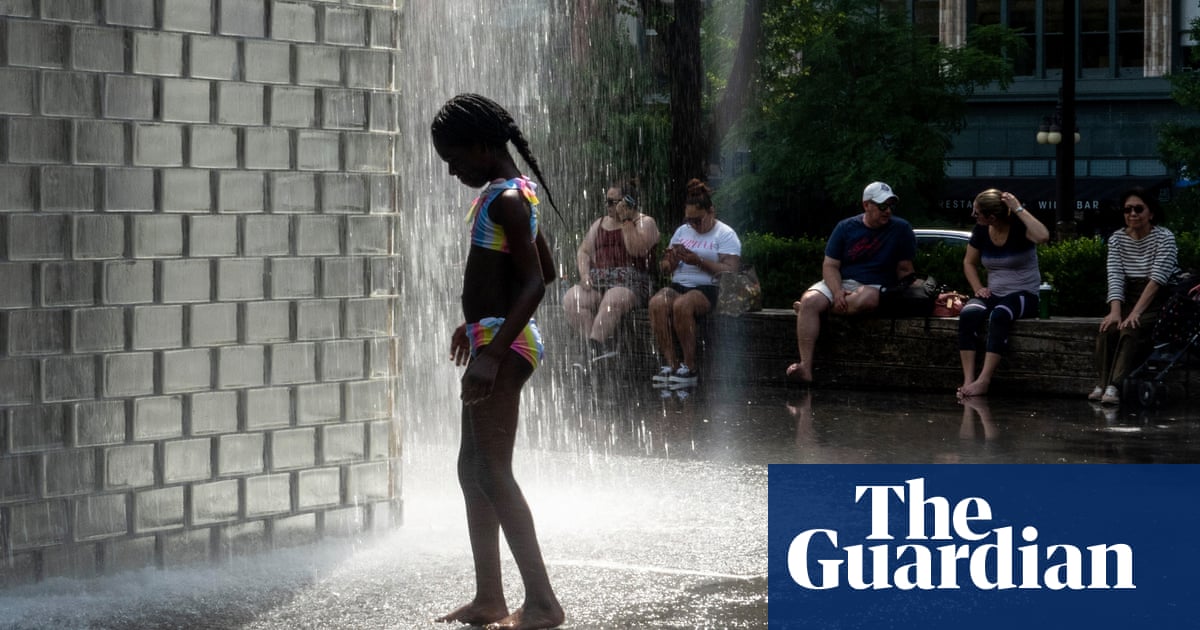More than 270 million Americans – about 80% of the country’s population – are experiencing a kind of heatwave not seen in decades, smashing records with temperatures at or above 90F (32.2C) for long periods of time under a weather phenomenon known as a heat dome.
New York governor Kathy Hochul has announced that she activated the National Guard to assist in any heat emergencies that may develop over the next several days.
Cooling centers have opened in cities across the US in anticipation of the sweltering heat. Government officials have warned people to limit outdoor activities, drink plenty of water, and cautioned those without reliable air conditioning to find a way to cool down.
What is a heat dome?
Heatwaves happen when abnormally hot weather lasts more than two days. The National Weather Service said: “The duration of this heat wave is notable and potentially the longest experienced in decades for some locations.”
A heatwave can be caused by several factors including a heat dome, which occurs when strong, high pressure traps hot air over a region, preventing cool air from traveling in and causing temperatures to rise on the ground and stay high.
This heat dome now seen in the eastern half of the country originated from the south-west, where many cities were placed under excessive heat warnings.
What impact does the climate crisis have on heatwaves like this one?
Scientists warn that heatwaves like this one can increase in frequency as the climate crisis intensifies due to human activity, such as burning fossil fuels and deforestation.
Last year, the US saw the most heatwaves since 1936.
The nonprofit Center for Biological Diversity sent a petition Monday to the Federal Emergency Management Agency (Fema) asking it to recognize extreme heat and wildfire smoke as major disasters.
The agency did not immediately issue a specific response to the petition, but a Fema spokesperson for the western US states said there was nothing that would preclude an emergency declaration for extreme heat and noted that there would need to be an immediate threat to life and safety that local authorities could not respond to.
What are other risks associated with the heat?
Wildfires are sweeping parts of the US as a result of the soaring temperatures.
In New Mexico, residents of Ruidoso, a town of roughly 7,000 people, were ordered to evacuate on Monday evening as the South Fork wildfire tore through neighboring areas.
Many wildfires are also active on the west coast, according to agencies like the California department of forestry and fire protection.
In southern California, 1,200 people were evacuated on Sunday from Gorman, a town nearly 62 miles (100km) north-west of Los Angeles. Referred to as the “Post fire”, it burned more than 16 sq miles and damaged at least two commercial buildings. So far, 24% of the blaze has been contained.
Poor air quality is also a concern right now since higher temperatures and humidity can contribute to air pollution. In addition to communities near these wildfires, states further away in the midwest such as Ohio and Illinois, and the east coast are also under air quality alerts.
“An Air Quality action day means that Ground Level Ozone within the region may approach or exceed unhealthy standards,” according to the National Weather Service.
Last June, wind blew smoke from wildfires in Canada to the US’s east coast region, placing cities like New York under air quality alerts and shrouding them in an orange haze.
The Illinois environmental protection agency warned those under the air quality action day alert to “Limit driving, Conserve energy to reduce energy demands”, and “avoid using gasoline-powered equipment like lawnmowers and leaf blowers”.

